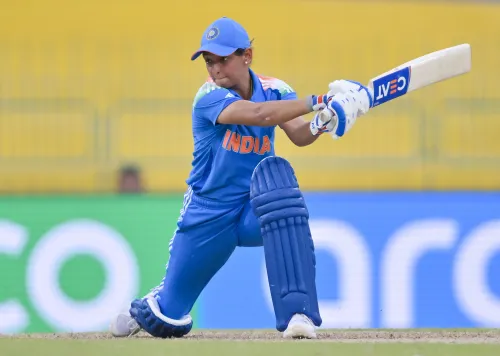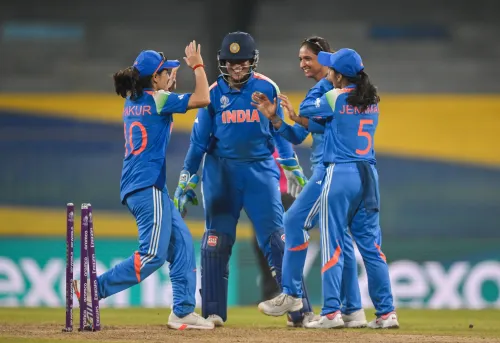Could Countries Face Bankruptcy by Continuing to Play Test Cricket?

Synopsis
Key Takeaways
- Financial sustainability is a major concern for Test-playing nations.
- A two-tier Test system may be a viable solution.
- Test cricket must be meaningful to retain its value.
- The Ashes series exemplifies the importance of competitive cricket.
- Investment in global cricket infrastructure is essential.
Melbourne, Aug 13 (NationPress) The chief executive of Cricket Australia (CA), Todd Greenberg, has raised concerns that certain countries could face bankruptcy if they continue to engage in Test cricket. He envisions a scenario where the number of nations participating in this traditional format may dwindle in the future.
Currently, nine teams are competing in the World Test Championship (WTC), but a working group was formed during the ICC Annual Conference in Singapore to evaluate the viability of a two-tier Test system.
“I don’t believe there is a definitive number of Test-playing nations… However, I think that in the future, a scarcity in Test cricket could prove beneficial rather than detrimental. What I mean by this is that not every country in the cricketing world needs to aspire to play Test cricket, and that might be acceptable,” Greenberg stated.
“Many traditionalists may disagree with that perspective (and) while I can't specify the exact number of nations that will participate, we are literally pushing countries towards financial instability by compelling them to play Test cricket. We must ensure our investments are directed towards regions where Test cricket holds significance and carries risk,” he continued.
“This is why the Ashes series is so immensely profitable and meaningful; it resonates with every player involved. We must keep this importance at the forefront whenever we engage in Test cricket,” Greenberg added while addressing reporters at the event marking 100 days until the Ashes.
Although Greenberg refrained from expressing a definitive stance on a two-tier Test system, he indicated it is essential for Australia to investigate ways to sustain the longest format. “I’m open to exploring this concept because I’m not fully aware of what a two-tier structure would entail. Test cricket requires an infusion of capital and resources, as it cannot solely revolve around Australia, India, and England; it has to encompass a broader scope,” he remarked.
He also expressed his willingness to organize red-ball matches in Queensland and the Northern Territory during winter. Australia is currently hosting South Africa for T20Is and ODIs in Darwin, Cairns, and Mackay, with the last Test matches in Darwin and Cairns occurring nearly 20 years ago.
“I was in Darwin on Sunday night (for the first T20I). I went there primarily because it meant a lot to the people of the Northern Territory. They hadn't had international cricket there for almost 17 years. The one advantage of scheduling cricket in this period is the weather. Excellent facilities make it feasible to host Tests,” he concluded.









